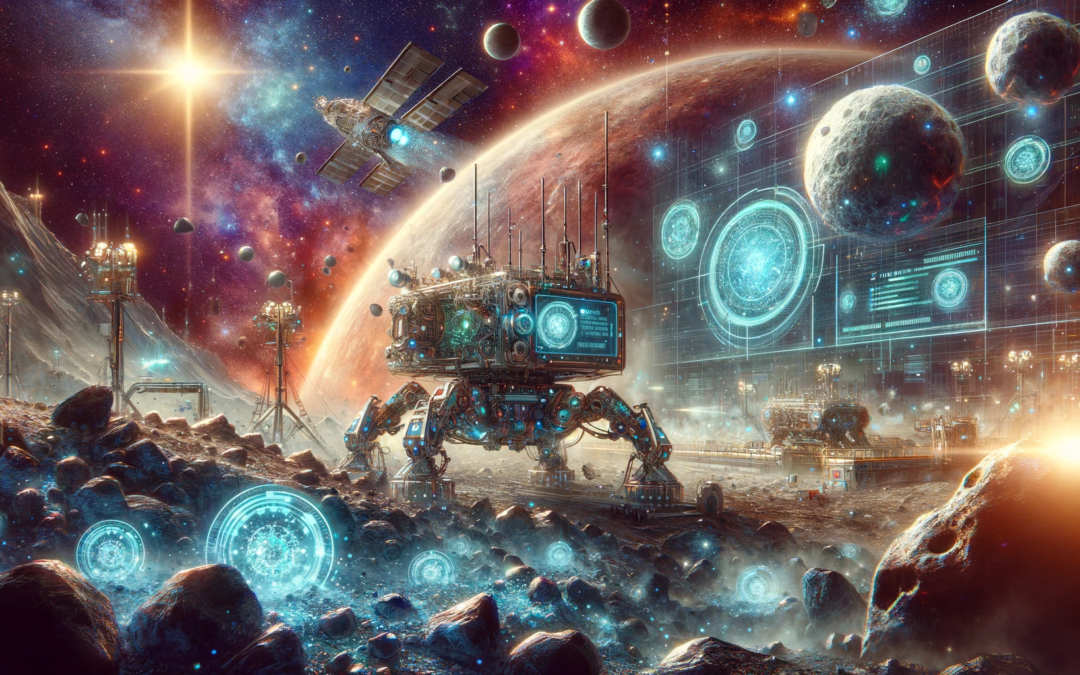For centuries, humans have been captivated by the mysteries of space, gazing up at the night sky in awe and wonder. Now, with the advent of artificial intelligence (AI), particularly AI, we are on the brink of a new era in space exploration. AI is not only revolutionizing our approach to exploring the cosmos but also enhancing our understanding of the universe itself.
AI in Space Missions
AI has become an indispensable tool in planning and executing space missions. From the Mars rovers to satellite deployments, AI plays a crucial role in managing complex operations and responding to the unpredictable environments of space. It enables autonomous decision-making, allowing spacecraft to adapt and make critical choices in real-time.
AI in Astronomical Research
AI is also making significant contributions to astronomical research. With its ability to analyze vast amounts of data from telescopes and space probes, AI is helping scientists uncover new celestial bodies and phenomena. By sifting through the noise, AI algorithms can identify patterns and anomalies that humans may have missed, leading to groundbreaking discoveries.
AI and Deep Space Communication
Communication over vast interstellar distances is no easy feat, but AI is here to help. AI-driven communication networks are being developed to enhance our ability to communicate with deep space probes and future manned missions. These networks can adapt to changing conditions and optimize data transmission, ensuring that we stay connected with our cosmic explorers.
AI in Spacecraft Design and Navigation
The design and navigation of spacecraft are critical aspects of space exploration, and AI is playing a pivotal role in both. AI technologies are aiding in the design of advanced spacecraft, optimizing their performance and efficiency. Additionally, AI is improving navigation systems, enabling spacecraft to navigate through the vastness of space with precision and accuracy.
Ethical and Safety Considerations
As we rely more on AI for critical decisions in space exploration, ethical and safety considerations come to the forefront. Striking the right balance between AI autonomy and human oversight is crucial. While AI can enhance our capabilities, it is essential to ensure that human values and ethical guidelines are embedded in the decision-making process.
The Future of AI in Space Exploration
Looking ahead, the future of AI in space exploration is filled with exciting possibilities. As AI continues to advance, we can only speculate on the potential discoveries and challenges it may encounter in space. Will AI uncover new mysteries of the universe? How will AI-driven space missions shape our understanding of the cosmos? These are questions that will shape the future of space science in the AI era.
Engaging with the Audience
We invite you, our readers, to share your thoughts on the role of AI in space exploration. What potential discoveries do you envision? What challenges do you foresee? Let’s engage in a discussion about the future of space science in the age of AI.
Conclusion
AI is revolutionizing space exploration and astronomical research, opening up new frontiers in our understanding of the universe. From AI-driven space missions to advancements in deep space communication and spacecraft design, the possibilities are endless. As we embark on this journey, let us embrace the transformative power of AI and imagine the extraordinary discoveries that lie ahead at the intersection of AI and space science.
Visual Elements:
Include images or graphics depicting AI applications in space exploration, such as AI-driven rovers or space probes. Use infographics to illustrate AI’s role in data analysis and spacecraft design.
SEO Elements:
Integrate keywords like “AI in space exploration,” “AI in astronomy,” and “AI-driven space missions.” Create a compelling meta description that encapsulates the post’s focus on AI’s impact on space exploration.
This post will provide insights into the innovative ways AI is being used in space exploration, sparking imagination and discussion about the future of space science in the AI era.










